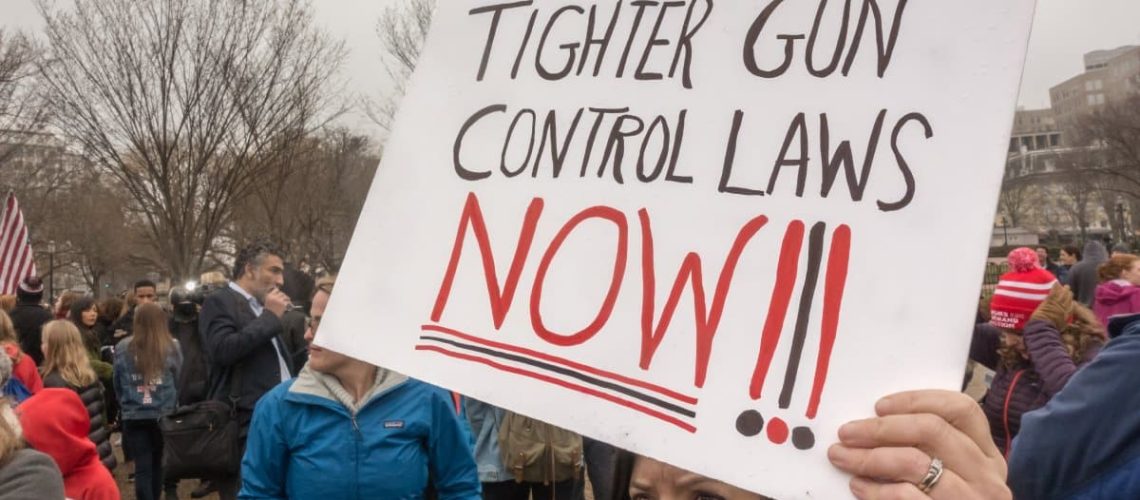Massachusetts recently passed a groundbreaking new gun safety law, signed by Governor Maura Healey, marking one of the most significant overhauls of the state’s firearm regulations in a decade. The legislation aims to tighten restrictions on untraceable firearms, commonly known as ghost guns, and further regulate the possession of assault-style weapons. The new measures follow a multi-year effort to address growing concerns about gun violence in the state and nationwide.
Tackling Ghost Guns and Untraceable Firearms
At the heart of the new law is a comprehensive crackdown on ghost guns—homemade firearms that lack serial numbers, making them untraceable. These weapons, often assembled using kits or 3D-printed parts, have become a growing concern for law enforcement agencies due to their ease of access and anonymity. The law requires that all firearms, including those made or assembled in Massachusetts, must be registered and serialized.
Governor Healey described the legislation as a necessary step to combat the proliferation of dangerous weapons:
“Ghost guns and 3D-printed firearms pose a tremendous risk to public safety, and our laws must evolve to stop their spread. This new law strengthens our ability to hold violent offenders accountable and protect our communities.”
The law criminalizes the manufacture, sale, and possession of ghost guns, imposing a sentence of one to 1.5 years for violations. It also expands the scope of illegal firearms to include parts that can be used to modify guns into automatic or more lethal weapons.
Expanding the Assault Weapons Ban
The new legislation also updates Massachusetts’ assault weapons ban, broadening the definition of “assault weapons” to include additional firearm models and those with similar functionalities. It prohibits the sale, transfer, or possession of “assault-style” firearms and large-capacity feeding devices. In addition, the law restricts the issuance of machine gun licenses, with exceptions only for certified firearms instructors and bona fide collectors.
House Speaker Ronald J. Mariano, who played a key role in shaping the legislation, emphasized the importance of keeping dangerous weapons out of communities:
“While Massachusetts has long been a leader in gun safety, we cannot be complacent. This law strengthens the reforms we made in 2014 and ensures that we stay ahead of emerging threats, like ghost guns and unregulated weapon modifications.”
The updated assault weapons ban reflects Massachusetts’ continued commitment to strict gun regulations, which have made the state one of the safest in the nation regarding gun-related incidents.
Enhancing the Red Flag Law
In addition to targeting ghost guns and assault weapons, the new law also strengthens the state’s Extreme Risk Protective Order (ERPO) statute, commonly referred to as the Red Flag Law. The revised ERPO provisions allow a broader range of individuals to request the temporary removal of firearms from someone deemed to be a danger to themselves or others. Previously, only family members and law enforcement could seek an ERPO; now, healthcare providers and licensing authorities can also file requests.
The law further clarifies that individuals who have had their firearm licenses revoked under an ERPO cannot obtain new licenses while the protective order is in place. This is intended to close loopholes that previously allowed individuals to regain access to firearms despite being subject to an ERPO.
Addressing Gun Violence Prevention
In a move to curb gun violence before it starts, the legislation establishes a Violence Prevention Federal Reinvestment Trust Fund. This fund will support violence prevention and intervention services in communities most affected by gun violence. The initiative aims to provide early intervention programs, mental health services, and community outreach efforts to prevent potential violent incidents.
Public Safety Secretary Terrence Reidy praised the forward-thinking nature of the law:
“This legislation provides the tools needed to better protect Massachusetts residents from the epidemic of gun violence. By addressing ghost guns, assault weapons, and strengthening violence prevention, we are taking bold steps to save lives.”
The fund represents a shift towards preventive measures, acknowledging that gun violence can be tackled through both regulation and community-based approaches.
Controversy and Opposition
While Massachusetts has long been known for its strict gun laws, the new measures have drawn criticism from gun rights advocates who argue that the legislation places unnecessary restrictions on law-abiding gun owners. Jim Wallace, executive director of the Gun Owners’ Action League (GOAL), criticized the law’s broadening of assault weapon definitions, claiming it targets popular models used for hunting and self-defense.
Wallace stated:
“This law goes too far and punishes responsible gun owners. It does nothing to address the root causes of violence but instead targets lawful citizens exercising their Second Amendment rights.”
Despite the opposition, the law passed with significant support from both state lawmakers and advocacy groups. Proponents argue that the legislation strikes a balance between protecting public safety and upholding constitutional rights, with a focus on preventing access to the most dangerous firearms.
Debates Continue
Massachusetts’ new gun safety law reflects the state’s ongoing efforts to lead in gun violence prevention. By targeting ghost guns, tightening assault weapon regulations, and expanding the Red Flag Law, the state aims to reduce gun-related incidents while preventing future tragedies. Governor Healey and lawmakers have positioned the Commonwealth as a national leader in comprehensive gun control, while debates over Second Amendment rights continue.
21 Beliefs About the Bible That Are Actually False

The Bible is one of the most discussed and debated books in history, yet many common beliefs about it are more myth than fact. How many of these misconceptions have you heard before? 21 Beliefs About the Bible That Are Actually False
21 Subtle Racisms That Are Commonplace in America

Racism in America isn’t always overt; it often hides in plain sight through subtle actions and attitudes. How many of these subtle racisms have you noticed around you? 21 Subtle Racisms That Are Commonplace in America
Featured Image Credit: Shutterstock /Bob Korn.
This post first appeared on Pulse of Pride.

